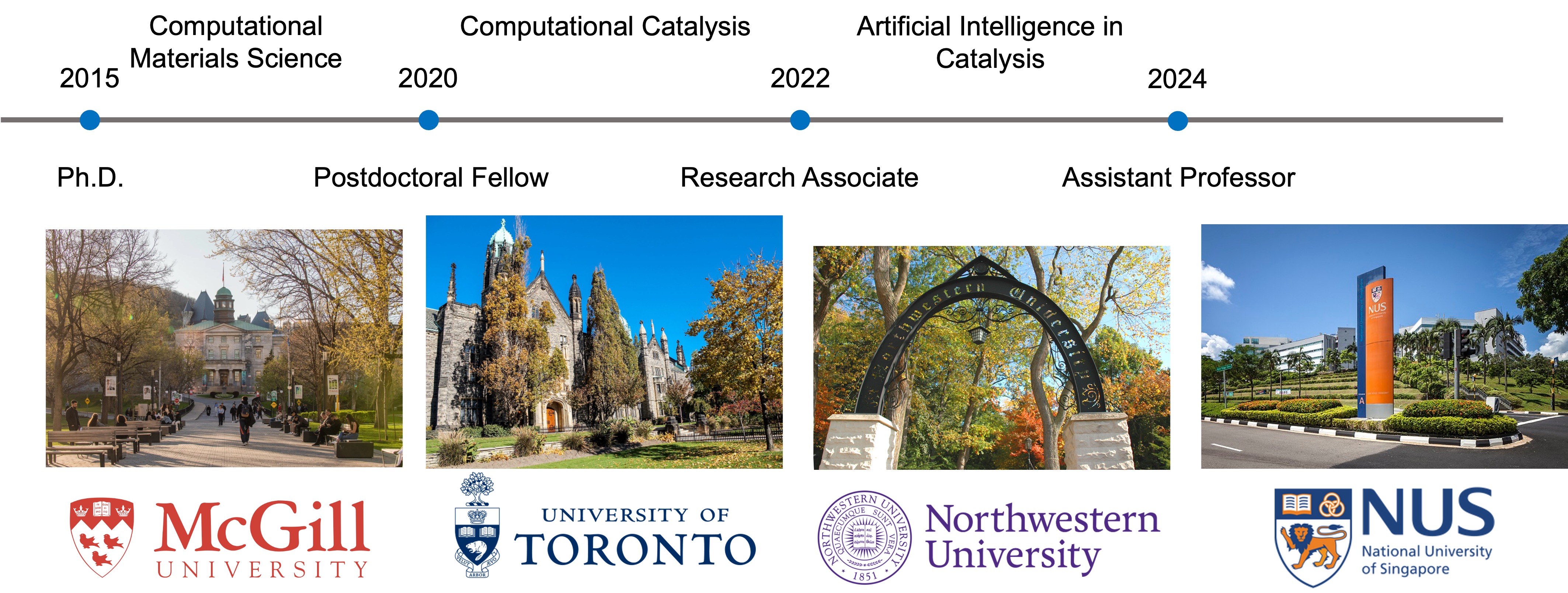Asst. Prof. Pengfei Ou

Pengfei Ou
NUS Presidential Young Professorship
Office: MD1-05-03C
Department of Chemistry, Faculty of Science
12 Science Drive 2, 117549, Singapore
Email: pengf.ou@nus.edu.sg
Google Scholar LinkedIn X
Asst. Prof. Pengfei Ou joined the Department of Chemistry at the National University of Singapore (NUS) as a Presidential Young Professor in August 2024. He received his Ph.D. from McGill University in 2020 (advisor: Professor Jun Song). He was a postdoctoral fellow at the University of Toronto from 2020 to 2022 and a Research Associate at Northwestern University from 2022 to 2024, under the guidance of Professor Edward H. Sargent. Dr. Ou’s research is focusedon computational materials science, computational catalysis, and machine learning. He has published papers in prestigious journals such as Nat. Energy, Nat. Catal., Nat. Commun., J. Am. Chem. Soc., Sci. Adv., and Proc. Natl. Acad. Sci, as first or corresponding author. To date, he has authored over 100 papers with >6,400 citations and an H-index of 41. Dr. Ou’s work has been recognized with several awards, including the Presidential Young Professorship at NUS, and the Chinese Government Award for Outstanding Self-financed Students Abroad.
Dr. Ou’s AI for Chemistry (AI4Chem) research group focuses on theory-guided and data-driven computational catalysis, with specific researchdirections including: (1) Reaction mechanism and catalyst design: we explore the reaction mechanism and optimize catalyst design related to energy and environmental applications, using DFT calculations, transition state search, microkinetic modelling, and Monte Carlo simulations. (2) Dynamic structure-performance relationship: we use solvation models to dynamically simulate chemical processes under reaction conditions to identify the optimal reaction conditions by considering factors such as solvation, ions, and external potential in electrochemical processes. (3) Machine learning algorithms and database: we apply machine learning algorithms to enable high-throughput screening of catalysts and build databases that correlate material structures with physicochemical properties.
